Memories of the great poet and cultural figure Tran Huu Thung
Outstanding works of poet Tran Huu Thung (1923 - 1999) include: Vietnam Ly Khuc (1944), long poem; Visiting Rice (1950), poem (outstanding work); Advice to Children (1955), poetry collection; That Autumn Day: August Revolution Song (1957), long poem; I Make Folk Songs (1959), essay; Hai To Ho Khoan (1961), poetry...
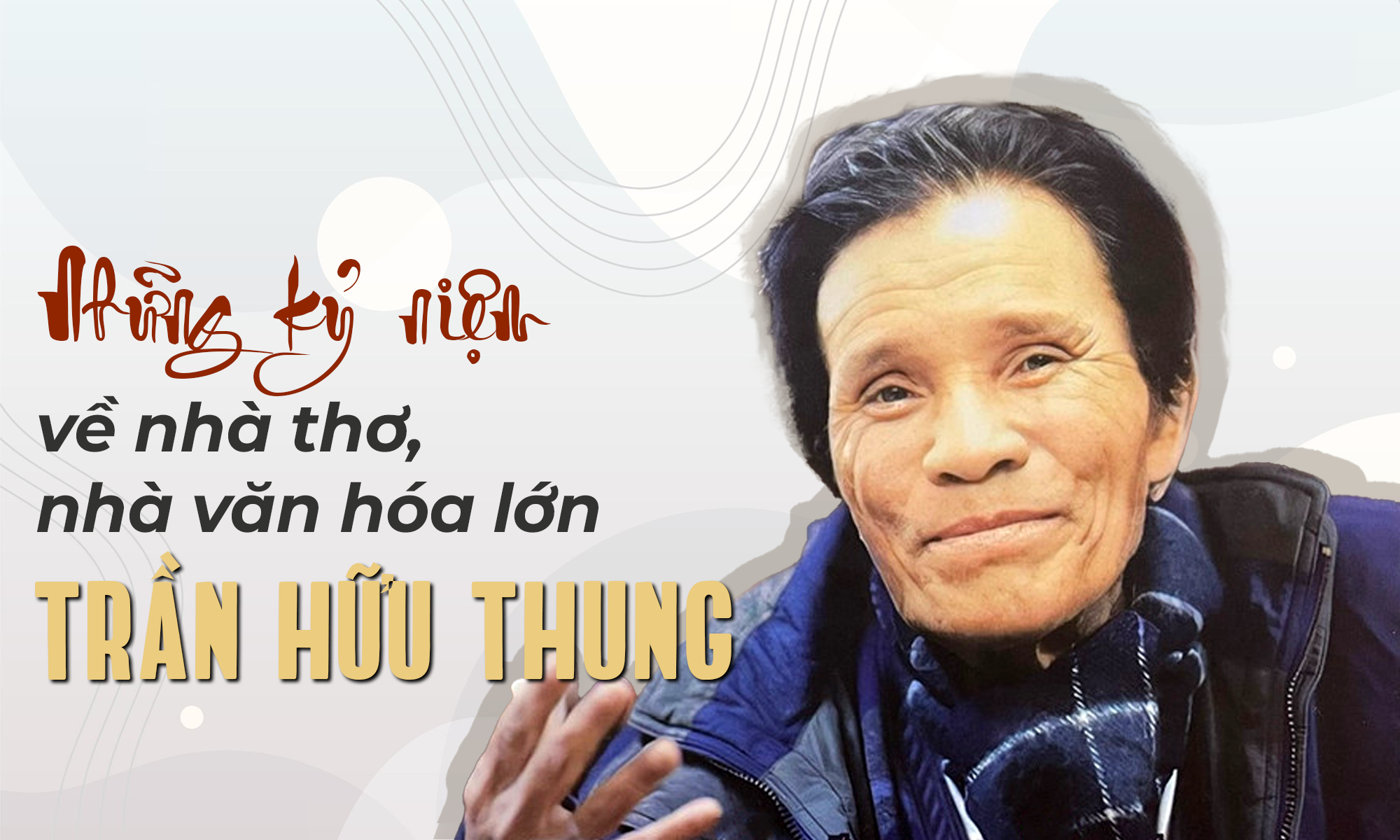
Ngo Duc Tien•30/01/2025
Tran Huu Thung (1923 - 1999), is a famous Vietnamese poet with the poem "Visiting the Rice Fields". He was born on July 26, 1923 in Dien Minh commune, Dien Chau district, Nghe An province. He joined the Viet Minh in 1944. His outstanding works include: Vietnam Ly Khuc (1944), long poem; Visiting the Rice Fields (1950), poem (outstanding work); Advice to Children (1955), collection of poems; That Autumn Day: August Revolution Song (1957), long poem; I Make Folk Songs (1959), essay; Hai To Ho Khoan (1961), poem; Chi Nguyen Thi Minh Khai (1961), narrative poem; Southern Wind (1962), narrative poem; Dong Thang August (1965), collection of poems; Vinh's Burning Memories (1969), memoir; My Homeland (1971), collection of poems; Tieng Chim Dong (1975), collection of poems; That Day by the Lam River (1980) (film script); I Still Marched (1983), poetry collection; Lotus in Uncle Ho's Hometown (1985 - 1987), poetry collection; Memories of the Rice Fields (1988), memoir collection; Miscellaneous Poems (1996); Memories of Hunting (1996), memoir; Folk Songs About Uncle Ho (1998), poetry collection - folk songs; Words of the Tree, poetry collection...

...
I knew by heart the poem "Visiting Rice" and anecdotes about poet Tran Huu Thung since I was in school through the reading and narration of teachers and poets I admired such as Quang Huy and Phan Sinh Vien.
The first time I met him was at the end of 1961 at my grandmother's house. I had just come home from school and ran down to visit her when I saw Mr. Nguyen Thanh Kham (my grandmother's uncle's son) with a big, strong man, a square face, thick eyebrows, big, black eyes, and a bright smile. My grandmother said: Say hello to Mr. Kham, say hello to poet Tran Huu Thung. I was both surprised and extremely happy to meet the famous poet I had always admired. At that time, my village was a place with a cooperative movement, a tree planting movement, and a famous irrigation movement in the North that Uncle Ho had visited. Knowing that Mr. Nguyen Thanh Kham and his literary friends were "going to penetrate the reality" here, Uncle Thung came to visit and was led by Mr. Kham to my grandmother's house to visit.
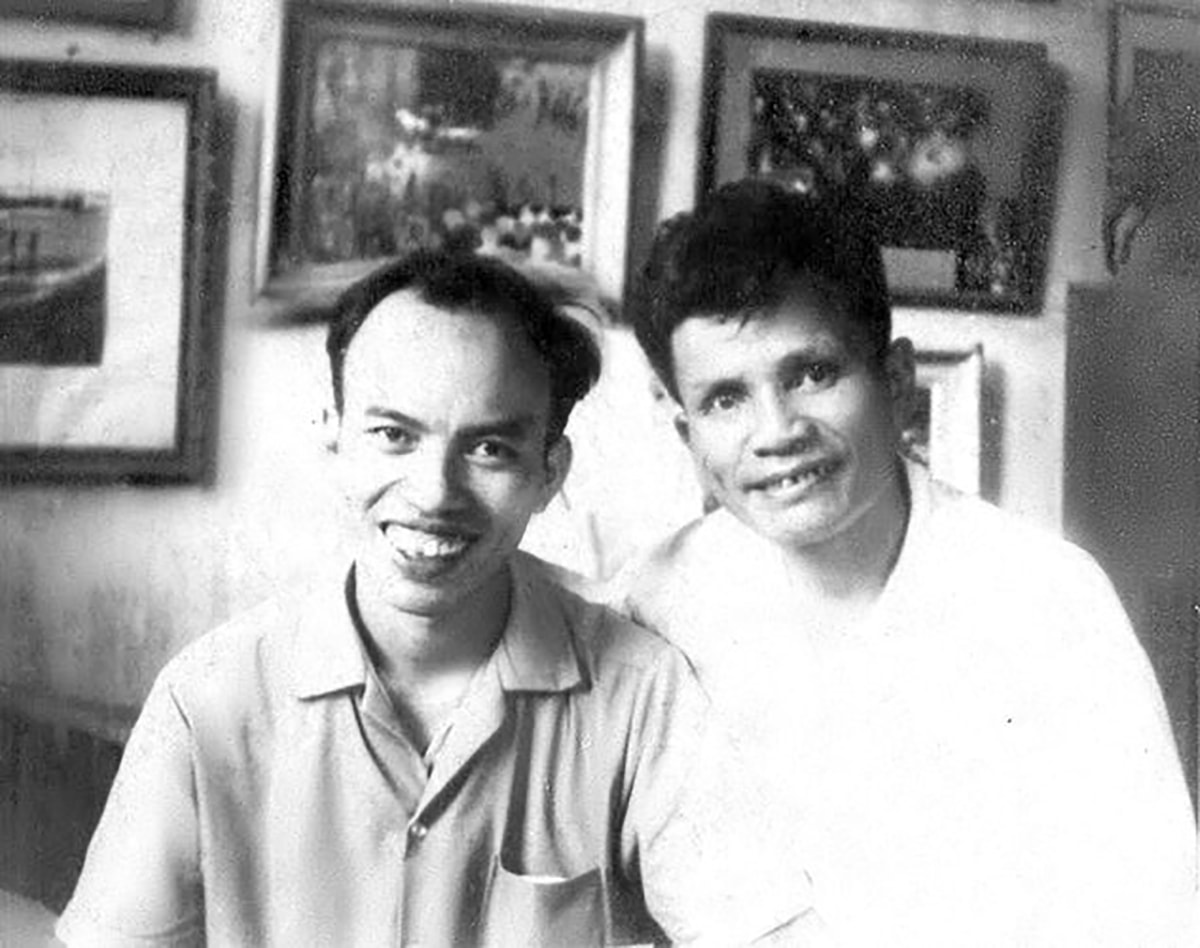
Until the years 1966 to 1969, when I returned to teach in Thanh Chuong, my colleague Nguyen The Quang introduced me to Mr. Quang Huy, and I had more contact and conversation with poet Tran Huu Thung. My first poems such as Dat Vo Liet, Voice of Art... were given to poet Tran Huu Thung to read first by Mr. Quang Huy. When I met him, poet Tran Huu Thung gave me gentle and sincere comments, I felt like I was being inspired, so I taught and wrote enthusiastically, and asked the teachers to correct any poems I had. In mid-1969, I was transferred to the North to study politics to prepare for the Southern battlefield, so I did not have the chance to meet the poets I always admired.
After several years in the battlefield, on nights lying in the forest, amidst the vastness of the Dong Thap River, I suddenly heard the poem "Anh van hanh quan" (I still march), written by Tran Huu Thung and performed by Huy Du. My heart was filled with excitement as I told my comrades: I am lucky to have met the poet Tran Huu Thung. Especially when I heard the poem "Anh van hanh quan" (I still march) through the bamboo flute of artist Dinh Thin, the poem seemed to have wings to stir the souls of a generation that split the Truong Son range to save the country. The poems and songs had spiritual power "like elite divisions".
After the country's reunification, in 1976 I returned to work at the Nghe An Provincial Party Committee's Party History Research Board. From Phong Toan hamlet (Vinh City), I visited Mr. Quang Huy and Mr. Tran Huu Thung. When we had royalties, we would go to our usual shop to drink bitter tea or eat "Mrs. Van's pho, Mrs. Luoc's porridge, Mrs. Thanh's water". Mr. Quang Huy and Mr. Tran Huu Thung reminded me to continue writing poetry and prose. I was invited to attend two literary events twice. That was in 1978, poet Thach Quy published the poem "Talk to my child" - a poem that caused a stir in public opinion. At that time, Vinh organized a meeting to discuss this poem. I was appointed by the board's leadership to attend. I met Mr. Thung and Mr. Quang Huy again. The conference had many lively opinions, at times tense, but when Mr. Thung spoke, with a soft, concise voice, both simple and learned, I felt the conference seemed to slow down, like a deflated balloon, then the chairman concluded, the conference dissolved. After that, public opinion was still murmuring, but poet Thach Quy was not affected at all.
The second event was when the Provincial Party Committee invited poet Tran Huu Thung to come back to give comments on the draft of the film script "That Day by the Lam River". This time the province invited him and writer Xuan Tung to the Provincial Party Committee Guest House to stay. Bui Ngoc Tam (in the 1930 - 1945 group) and I were assigned to attend and give comments. Soviet Nghe Tinh was a big topic, writers Hoang Ngoc Anh, Minh Hue, Ba Dung, Nguyen Trung Phong and many others had works on this topic. I was given a manuscript to read a few days in advance. Then I listened to Tran Huu Thung and Xuan Tung take turns reading nearly 200 pages of the manuscript. The sun was scorching, with only a few small fans, and they were sweating profusely reading. After each chapter, they stopped to discuss and give comments, the conference lasted a whole week. On the last day, the province invited us to Cua Lo for a party. Provincial Party Secretary Nguyen Sy Que attended and gave gifts to the authors. A few months later, the script was made into a film and was brought back to be screened at the Provincial Party Committee Hall. I arrived later and saw Mr. Tran Huu Thung sitting in the front row with the provincial leaders. Later, I learned that the script for the film “That Day on the Lam River” by Tran Huu Thung was the work with the most outstanding quality among all the works written on the topic of the Nghe Tinh Soviet.
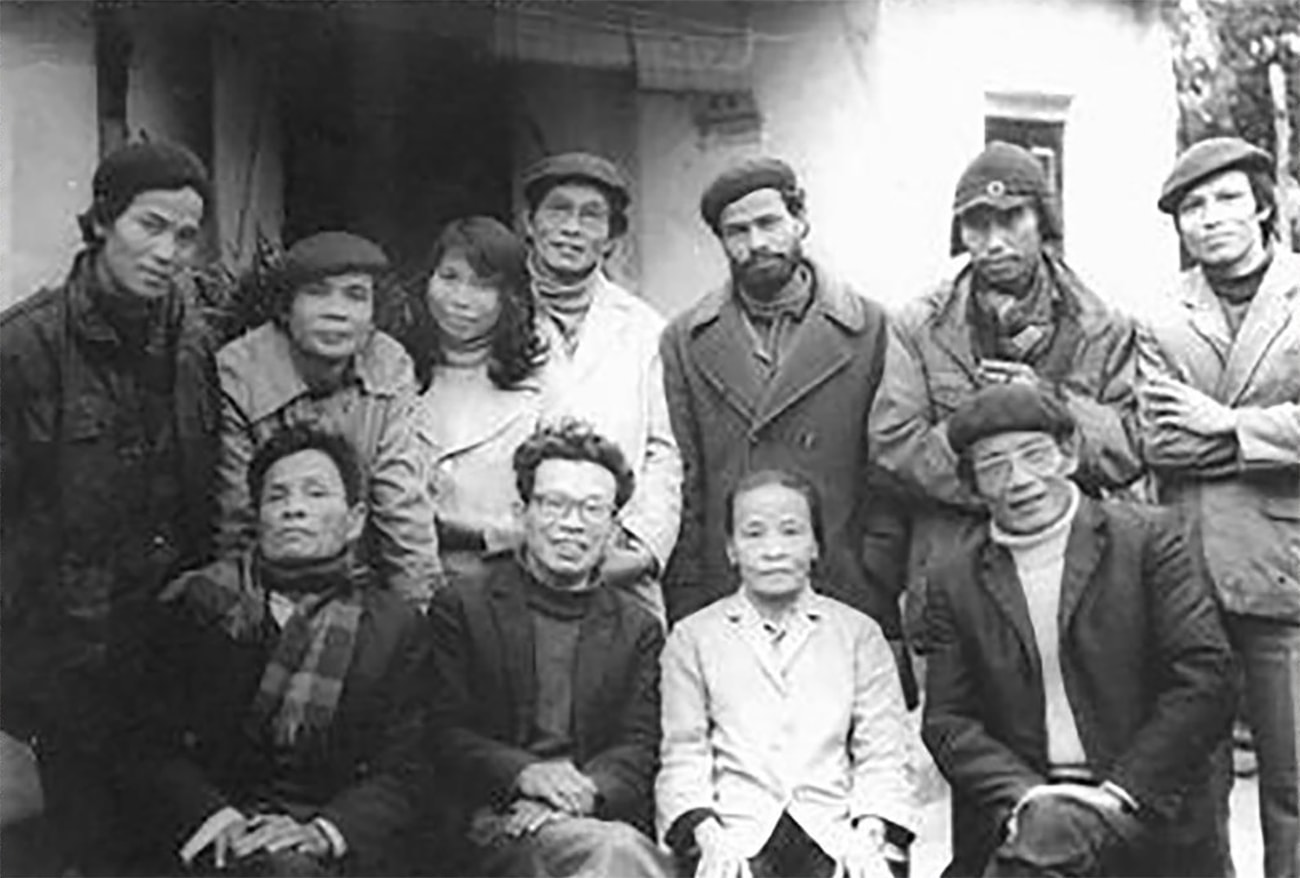
Since 1985, I was transferred to work at Yen Thanh District Party Committee and assigned to write the History of Yen Thanh District. Thanks to the guidance and advice of poet Canh Nguyen, who was then Deputy Director of Nghe Tinh Publishing House, I suggested that the district leaders ask poet Tran Huu Thung and poet Le Quoc An to help the district survey and translate historical sites about events and characters in the district. I went to Dien Chau to bring a letter from the District Party Committee Secretary asking him to "help the district, help me" collect and translate documents about Yen Thanh History. He said: I am also writing the Dien Chau History and Geographical Records, writing the Nghe Dictionary... I am very busy but the district asked me, a place of gratitude that cannot be refused.
So from 1985 to 1990, for 5 years, every year Mr. Tran Huu Thung went to Yen Thanh five or seven times, sometimes staying for a few weeks, sometimes more. We took him to almost all the historical sites in the district. The distant sites such as Do Thanh, Phuc Thanh, My Thanh were visited by car, and the nearby sites were visited by bicycle. Usually, we went in the morning and returned in the afternoon, having lunch wherever was convenient. At night, we stayed at the guest house. We said we were resting, but every night around 9 o'clock when I brought out the peanut wine, I saw the men still working all night. Following Mr. Thung to Xuan Tieu village, to Mr. Phan Duy Hue's house, where the conference to establish the district's provisional committee was held on August 23, 1945 to prepare for the uprising to seize power on August 25, 1945, he reminded me to go to the Phan family temple, to the house of poet Phan Khac Khoan. He said that poet Phan Khac Khoan was a rare representative of Nghe An in the new poetry movement, then he told the story of poet Phan Khac Khoan, along with him and 25 Vietnamese writers and poets attending the founding congress of the Vietnam Writers Association in 1957. Then he read the poem Phan Khac Khoan gave to General Nguyen Son. He advised: When you finish writing the history of the district, you should make a collection of district poetry and literature to preserve the cultural quintessence for your children and grandchildren.
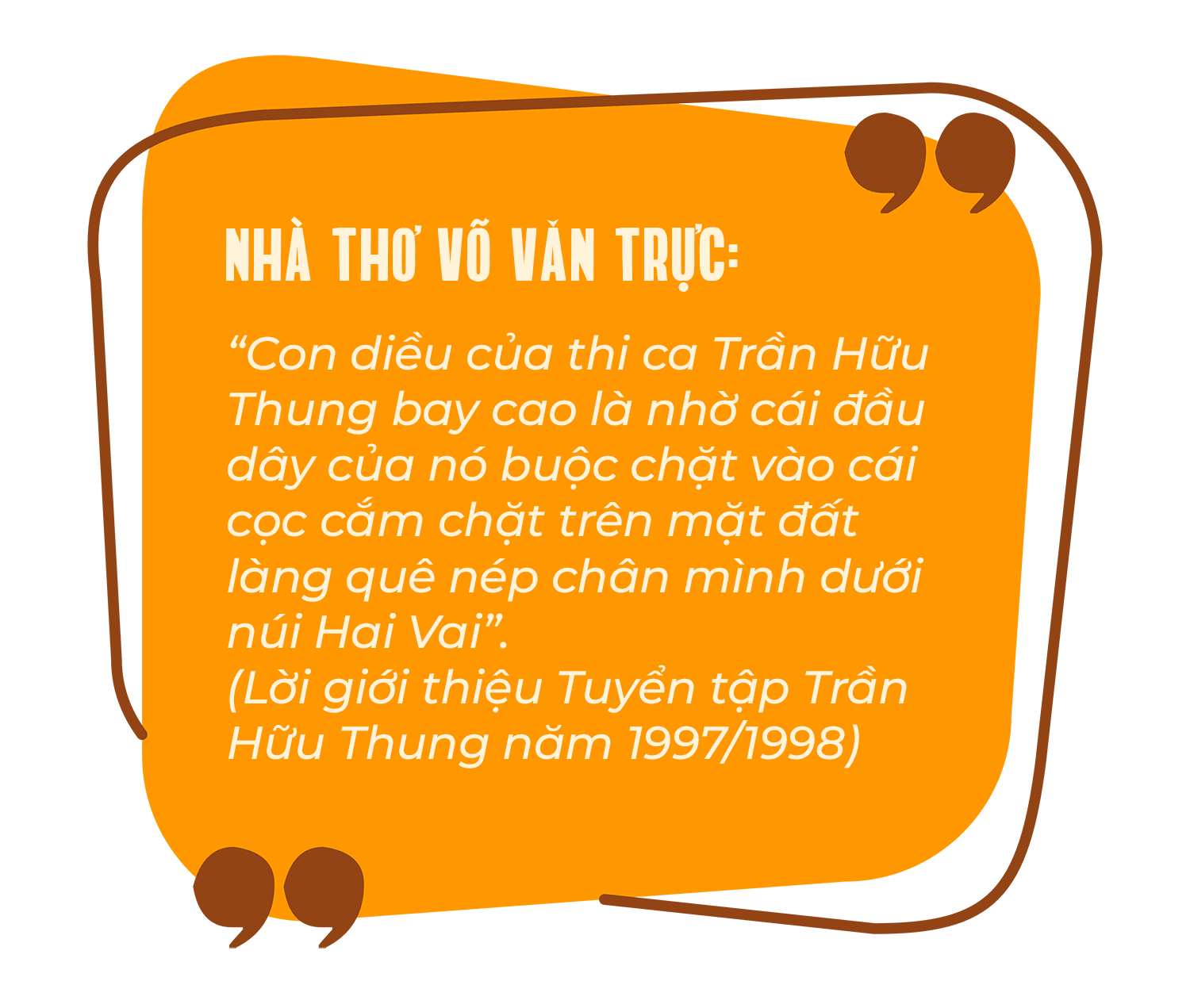
Going to the relic of General Nguyen Vinh Loc in Trang Nien, My Thanh, after entering the church to copy the parallel sentences, Mr. Thung told me to go to Trang Ke with him. When we reached the middle of the field, he stopped and whispered: In 1950, I was working at the Lien Khu 4 Arts Center with Hoang Trung Thong, an agency in Dong Bich village. During a wedding, I improvised the poem "Visiting the rice fields, missing my husband" and read it right at the wedding. After that, I edited it to remove the two words "missing my husband" and it was handwritten, lithographed and sent to many places and many people knew it by heart. Once, when I was going home from Do Luong to the middle of the field, I met two young men coming out of the bushes to block my way. At that time, this place was deserted and located between the two districts of Do Luong and Yen Thanh, robbers often came out to rob passersby. That day, I brought my backpack with a few books and a bunch of green tea. The two guys searched their backpacks and only found a few books and a few thousand dollars. When they reached for their travel documents, one of them asked: Are you Tran Huu Thung? Are you the author of the poem "Visiting Rice"? I said: Oh. One of them said: Even a poet is poor, you should get on the bus and go home...
Coming to the Vuong family temple in Xuan Dao village where Mr. Vuong Thuc, who organized a volunteer army called "Xuan Nghia Ho" to follow Mr. Nghe On to fight against the French, during a meal with Mr. Vuong Truyen - Party Secretary and also a descendant of Mr. Vuong Thuc, Mr. Thung said: Xuan Dao village in the past was famous for its custom of early marriage, boys and girls got married at the age of 13, 14 and had many children, but there were also many patriotic boys who joined the army to save the country. Coming to Phu Ninh, Khanh Thanh to the old hometown of Phan Thuc Truc, looking at the ruined worship relics, I saw him standing in contemplation and then he told anecdotes about Phan Thuc Truc. When returning to Quy Lang village to visit Sung communal house, visit the ancient lim forest where in the summer of 1967, he and poet Minh Hue, writer Bui Hien and veteran artists of Nghe An held a congress to establish the Nghe An Literature and Arts Association.
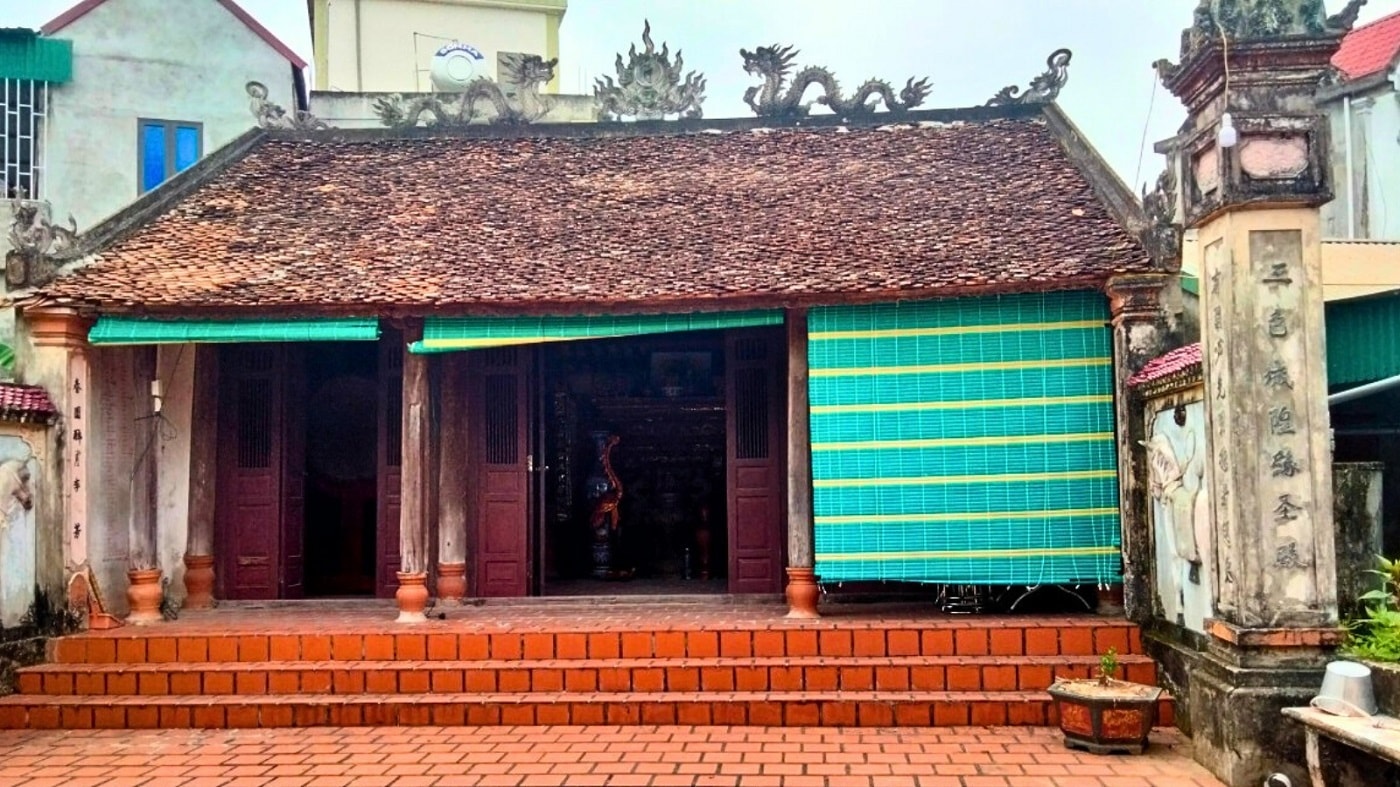
Going to Hoa Thanh, visiting Bao Lam communal house relic, going to the temple of the Third Prize Winner Phan Duy Thuc, the temple of the Third Prize Winner Phan Tat Thong, Chu Trac church, Phan Dang Luu church... almost at every relic, Tran Huu Thung had new discoveries. He reminded me to look for French documents about Chu Trac for him to translate. On free days, he invited me to go to Ke Ngoi, Tang Thanh, Ke Sang, Duc Thanh to visit the families where he and the Provincial Arts Association took refuge during the years the agency evacuated here. He remembered the names of each hunter friend in Ke Sang, the friends who cast nets and fished in Ke Ngoi. He also remembered which village had good wrestlers, which forest had lots of yams. Walking on Highway 33, he recalled the memory of the time he went from Dien Minh to Nhan Thanh, the muddy road had to carry his bicycle on his shoulder while walking and crawling, then he improvised a few lines:The road is called turtle/ What a turtle, what a turtle/ Praise someone for their talent/ Long road, bike on shoulder and crawl.
Then Mr. Thung told the story of the years in Yen Thanh when he and Mr. Nguyen Ba Ton - Chairman of the district organized a composing session for artists inside and outside the district to produce the book "Words of Rice". Mr. Thung told the story that at that time, Yen Thanh district had a very strong shock art troupe, which had staged many programs to attend the Military Region Congress. He told the story of one time after the flood, when he was driving on Highway 38, he saw that the flood water had broken many sections, so he improvised a few lines:The district is called Yen district/ But the road only goes up and down/ The district is called Thanh/ But the road only goes around and around/ Fish from Roc market are kept in stock/ I heard that the district is about to order road repairs.I wrote a gentle reminder, but two days later, Mr. Nguyen Ba Ton came to visit and said the district would like to accept and hold a conference to launch the annual rural traffic campaign.
I helped Yen Thanh district many times for months, but every time I sent compensation money, Mr. Tran Huu Thung did not receive it, so the district leaders assigned me to take it to his house to give to Ms. Phuong. When I went to Trung Phuong village, I saw him building a house. I heard Ms. Phuong say he was short of materials, so I asked the district leaders to arrange for someone to go to Vinh Tuy to bring it to him. When three ox carts of lime were brought down, I heard Mr. Nguyen Trung Phong say that the day before there was a shortage, but now the people of Dien Binh had brought it over. Mr. Thung said we should let the village repair the headquarters yard.
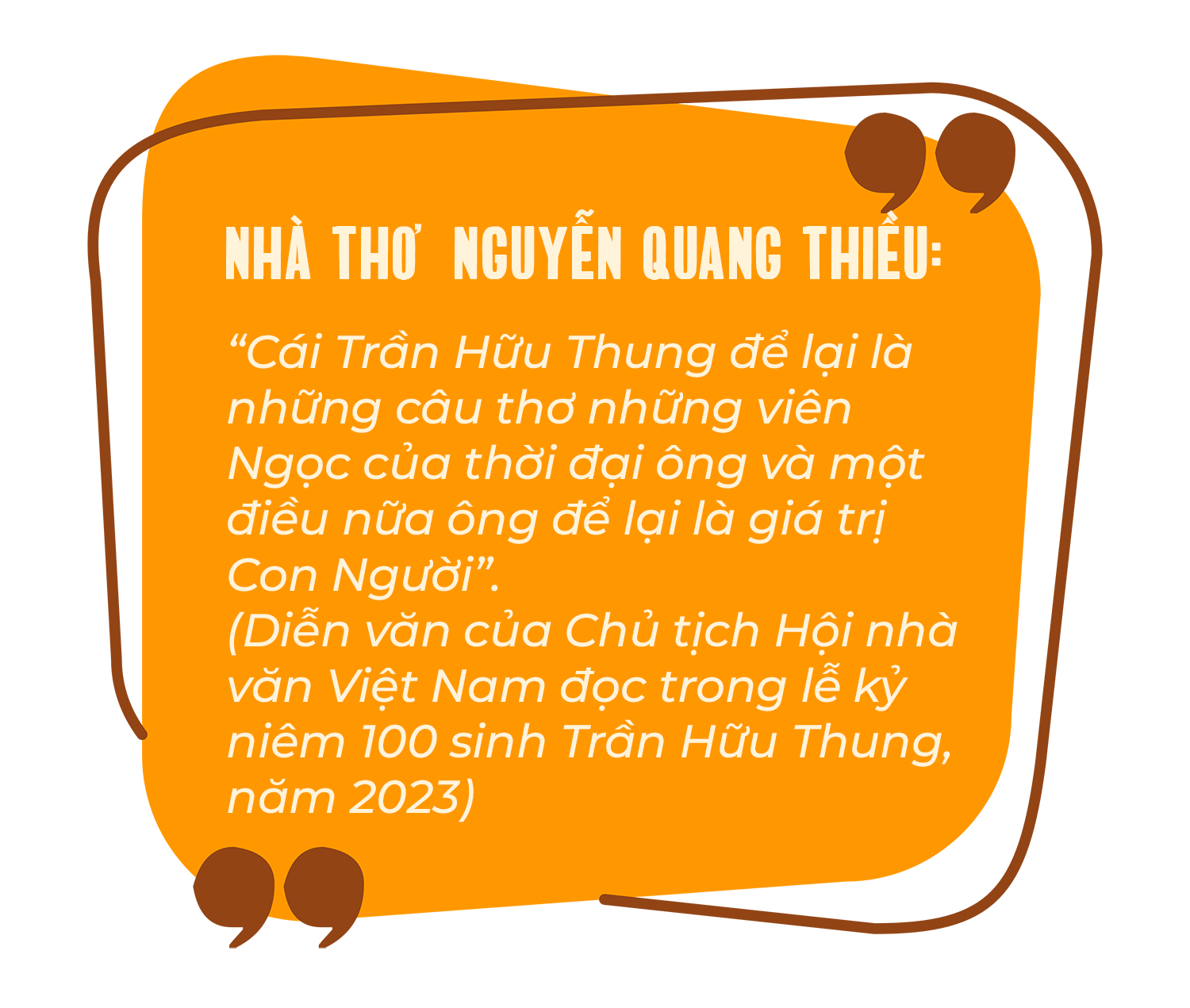
Once, Nguyen Xuan Phau and Nguyen Cong Hien and I went to Thung to visit. I brought a jug of wine and went to Hop Thanh market to buy a dozen bronze birds. When we reached Phu Dien intersection, the police came out to blow the whistle to stop the car. I stopped the car, gave them my papers, and explained that we were from Yen Thanh and were going to visit Tran Huu Thung's house, asking them to let us go. The traffic police looked at the three of us and said: "If you are going to visit the poet Tran Huu Thung, please go, but next time don't bring me." The three of us "escaped" and quickly went to Thung's house. When we got home, we saw him still busy writing the district's geography. He said: "We have already made the coffin, and are planning to coordinate with Ninh Viet Giao to add the Folk Literature section, and ask Vo Van Truc, Le Thai Son, Thai Doan Chat, Dang Quang Lien, and Nguyen Nghia Nguyen to add the Village Culture section, and then present it to the district for a printing conference. I said, "When the book comes out, please give me a few copies." Unexpectedly, when the district agreed to print, the day the manuscript was approved, he sent me a copy, and on the day the book was launched, I was invited to attend the meeting and received a gift. The book DIEN CHAU GEOGRAPHY OF CULTURE AND VILLAGES is a thick and impressive book, full of comprehensive scientific knowledge like an encyclopedia about a land with more than a thousand years of history. The book is co-edited by Tran Huu Thung and Ninh Viet Giao with the collaboration of others, but the main credit belongs to Tran Huu Thung. This collection of GEOGRAPHY opens and serves as a model for other collections of GEOGRAPHY of districts and communes. Later, when I counted more than 20 books by Tran Huu Thung, I saw people mentioning "Visiting Rice", "Anh Van Hanh Quan", "the Pearls of the Era" (words used by poet Nguyen Quang Thieu - Chairman of the Vietnam Writers Association), because these works expressed the aspirations of the people, of the nation and the era, mentioned the massive poetry collections of 3,000 verses such as the collection GIO NAM, mentioned the works "Chuyen Trang Xu Nghe", "Ca dao ve Bac Ho", "Tu Dictionnaire of Nghe" (co-edited with Thai Kim Dinh)... Having been close to Tran Huu Thung for many years, having read many articles about Tran Huu Thung, a poet, writer, great culturalist, a great personality, a HUMAN (words used by Nguyen Quang Thieu), I still really appreciate the comment of writer Nguyen The Quang: Tran Huu Thung is a simple but erudite person. He is a poet, a great culturalist, a Nghe person.
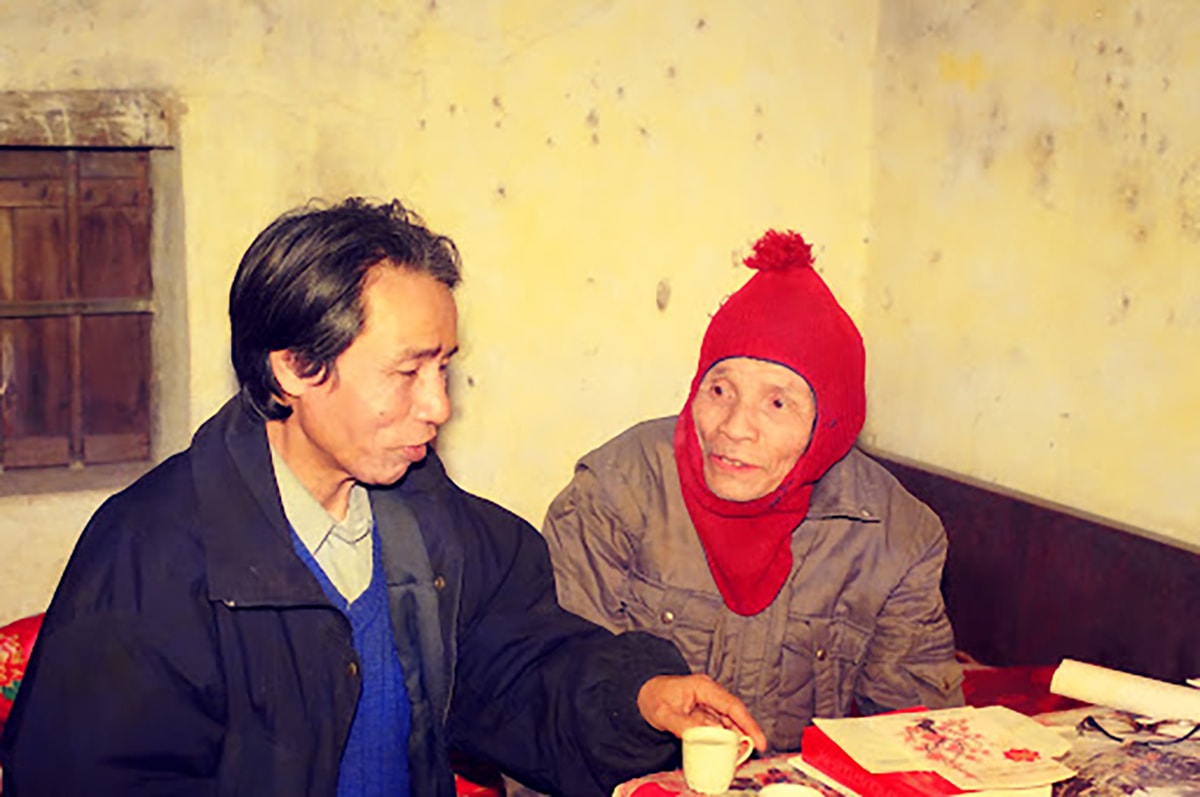
Poet Xuan Dieu also commented: "In my opinion, among the new generation of poets since the August Revolution, Thung has a distinct and unique place. So always try, sincerely be a poet, Thung will contribute something to Vietnamese poetry...". And poet Bui Hien thinks that he is a "Farmer Poet"!

.png)
.jpg)

